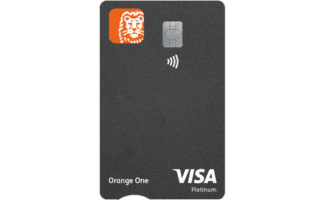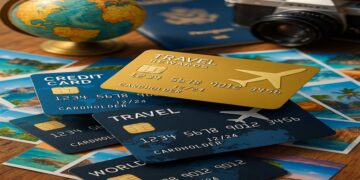How to Plan an International Trip Without Compromising Your Budget

Maximizing Your Budget for International Travel
For Australians considering international travel, the excitement of exploring far-flung destinations can quickly be tempered by concerns about finances. However, with meticulous planning and strategic decision-making, it is feasible to embark on a memorable journey while adhering to a budget. Here, we delve deeper into the essential factors that play a significant role in managing travel costs.
Destination Selection
One of the first steps in planning an affordable international holiday is the selection of a destination. Countries in Southeast Asia, such as Thailand, Vietnam, and Indonesia, often provide great value for Australian travelers, given the favorable exchange rates and lower living costs. For instance, the cost of living in Thailand is approximately 60% less than in Australia, allowing travelers to enjoy accommodations, food, and activities at a fraction of the price.
Timing Your Trip
Another crucial aspect to consider is timing your trip. Traveling during the off-peak season can yield significant savings on flights and accommodations. For example, visiting European destinations in late autumn or early spring can result in reduced airfare and cheaper hotel rates compared to the summer peak season. Additionally, off-peak travel often allows for a more relaxed experience with fewer crowds at attractions.
Accommodation Alternatives
Accommodation costs can consume a substantial portion of your travel budget; thus, exploring alternative lodging options is prudent. Australians can look into hostels, which provide budget-friendly dormitory-style living or private rooms at lower costs. Websites like Airbnb and local guesthouses offer unique stays that can enhance your travel experience while being economical. Reports indicate that staying in a local guesthouse may cost as much as 40-50% less than traditional hotel chains.
Meal Planning
Food is an integral part of the travel experience, yet dining in high-priced restaurants can quickly drain your budget. Opting for affordable eateries, such as local street food vendors or markets, allows travelers to enjoy authentic cuisine without the premium price tag. For instance, in cities like Hanoi, a traditional Vietnamese meal can be enjoyed for just a few dollars, offering a chance to experience the culture deeply without overspending.
Transportation Choices
Cost-effective transportation choices further aid in maximizing your travel budget. Utilizing public transportation systems—such as buses, metros, or trams—can be significantly cheaper than taxis or ride-share services. Additionally, budget airlines have proliferated, offering discounted flights within and between countries. For Australians traveling in Asia or Europe, carriers like AirAsia and Ryanair make it easy to explore multiple destinations while keeping costs low.
Implementing these budget-smart strategies enables travelers to indulge in the rich experiences that international travel affords while maintaining financial control. A balanced approach, focusing on key aspects such as destination choice, timing, accommodation, meal planning, and transportation, can lead to an enriching travel experience that is both affordable and enjoyable.
CHECK OUT: Click here to explore more
Strategic Budgeting for Your International Journey
To ensure a successful international trip without straining your finances, it is crucial to engage in strategic budgeting. Establishing a clear budget will serve as your roadmap, guiding you through your travel plans while helping you avoid unexpected expenses. This involves determining how much you can afford to spend and allocating funds accordingly across various aspects of your trip.
Creating a Travel Budget
The foundation of cost-effective international travel starts with developing a realistic travel budget. This budget should encompass all significant expenditures, which can be broken down into several categories:
- Airfare: Research flight prices using comparison websites and be open to adjusting your departure dates to find the best deals.
- Accommodation: Estimate lodging costs based on your destination and preferred style of accommodation.
- Meals: Allocate a daily food budget considering both dining out and self-catering options.
- Activities: Identify attractions and experiences you wish to enjoy, setting a numerical limit for each.
- Transportation: Consider local transport costs and plan for transfers between your accommodation and key sites.
- Contingency Funds: Allow for unexpected expenses or emergencies, typically 10-15% of your overall budget.
By itemizing your expenses, you will gain valuable insights into where you can save or splurge, ultimately steering clear of overspending.
Utilizing Budgeting Tools
In the digital age, various budgeting tools can simplify your travel financial planning. Mobile apps and online platforms such as Travel Mapper, Trail Wallet, or even standard spreadsheets can help track expenses in real-time. Such tools enable you to stay accountable to your budget while on the go, allowing you to make informed decisions during your trip. Furthermore, many budgeting applications offer currency converters and spending alerts, helping you maintain financial control as you traverse foreign landscapes.
Researching Costs in Advance
Another essential component of effective budget management involves researching costs in advance. Understanding the price structures of your travel destination will help you ascertain what to expect and how to plan accordingly. This includes looking into:
- Local Currency and Exchange Rates: Familiarize yourself with the local currency and where to exchange money at favorable rates to avoid costly fees.
- Cost of Living: Research the average costs of meals, transportation, and entertainment to gauge your daily expenses.
- Seasonal Variations: Prices for flights and activities can fluctuate; historical data can assist in strategizing when to travel for savings.
By conducting thorough research into your destination’s financial landscape, you position yourself to make wise spending choices while maximizing your travel experiences.
Implementing these budgeting strategies allows travelers to enjoy their international adventures while keeping fiscal responsibility top of mind. The careful planning of your expenses and utilising helpful tools will lead to a fulfilling journey devoid of financial worries, thereby enriching your overall travel experience.
CHECK OUT: Click here to explore more
Maximizing Value Without Sacrificing Experiences
Planning an international trip also involves making smart choices that enhance your travel experiences while ensuring you remain within your budget. This requires an astute approach to selecting destinations, activities, and services, emphasizing value over mere cost. Here are several strategies you can implement to maximize the overall value of your trip.
Choosing Budget-Friendly Destinations
One of the most effective ways to maintain your budget is to select destinations where the cost of living is lower. Countries in Southeast Asia, Eastern Europe, and parts of South America often provide significant savings compared to more tourist-heavy regions like Western Europe or North America. For instance, countries such as Vietnam, Hungary, and Colombia offer unique cultural experiences, stunning landscapes, and delicious cuisine at a fraction of the price found in Australia. By carefully considering your destination based on overall expenses, you can significantly stretch your travel budget.
Leveraging Off-Peak Travel
Timing your travel can greatly influence costs. Traveling during off-peak seasons can lead to considerable savings in airfare and accommodation. For example, visiting popular tourist destinations in the shoulder seasons (just before or after the peak tourist period) can provide lower prices and fewer crowds. This not only allows you to enjoy a more relaxed experience but also affords you the opportunity to interact more intimately with the local culture, as fewer tourists are present.
Free and Low-Cost Activities
Many international destinations offer a plethora of free or low-cost attractions. Parks, museums with free admission days, local festivals, and public art installations can provide enriching experiences without incurring significant costs. For example, in cities like Paris, visitors can enjoy iconic attractions such as the Notre Dame Cathedral or stroll along the Seine without spending a cent. Additionally, consider engaging with local communities through free walking tours, which often operate on a tips-only basis. This provides an insightful look into the culture while allowing you to decide how much to contribute based on your budget.
Dining Smartly
Your dining choices can drastically affect your overall expenses, yet they are crucial to experiencing the local culture. Consider a blend of eating out and preparing some meals yourself. Markets and grocery stores can provide a wealth of fresh, local ingredients for a fraction of the price of dining out. By cooking occasional meals, you retain the experience of local flavours while significantly cutting costs. When you do dine out, seek recommendations from locals to find authentic eateries that offer fulfilling meals at reasonable prices. Additionally, look for lunch menus which are often cheaper than dinner options and allow you to experience high-quality dining at a more economical price.
Utilizing Public Transport
Within many urban areas, public transport systems can provide a cost-effective alternative to taxis or rideshare services. Not only is public transportation significantly cheaper, but it also allows for a more immersive experience in your destination. Many cities offer day passes for unlimited travel or discounted rates for tourists. Consider investing in a multi-day pass that allows you to explore various attractions while keeping costs down. For example, in cities like Tokyo or Barcelona, the ease of public transport can be a boon for travelers seeking to explore without breaking the bank.
By employing these strategies, travelers can enrich their international experiences while remaining aligned with their financial parameters. Prioritizing savings without sacrificing quality enables a memorable journey that balances both adventure and cost-effectiveness.
SEE ALSO: Click here to read another article
Conclusion: Crafting Memorable Journeys on a Budget
Successfully planning an international trip without compromising your budget involves a multifaceted approach that prioritizes value without sacrificing meaningful experiences. By carefully selecting budget-friendly destinations, travelers can tap into lower costs while discovering unique cultures and picturesque landscapes. Timing your travel for off-peak seasons further enhances affordability, allowing for intimate interactions with local communities, free from the hustle of large tourist crowds.
Moreover, engaging in free and low-cost activities significantly enriches your journey, proving that memorable experiences do not always carry a hefty price tag. As well, adopting smart dining strategies—balancing home-cooked meals with carefully selected local eateries—can maintain the essence of culinary adventures while keeping spending in check. Additionally, leveraging public transport provides an affordable means to explore while immersing oneself in the daily life of the destination.
Ultimately, the key to planning an economical international trip lies in diligent preparation and flexibility. By being open to alternatives and learning how to stretch your expenses wisely, you can forge unforgettable memories that fit within your financial means. With these strategies at hand, travelers can embark on their adventures confident that they are making the most of their budget while creating experiences that will last a lifetime.

Linda Carter is a writer and expert in finance and investments. With extensive experience helping individuals achieve financial stability and make informed decisions, Linda shares her knowledge on the Innovbs platform. Her goal is to provide readers with practical advice and effective strategies to manage their finances and make smart investment choices.





